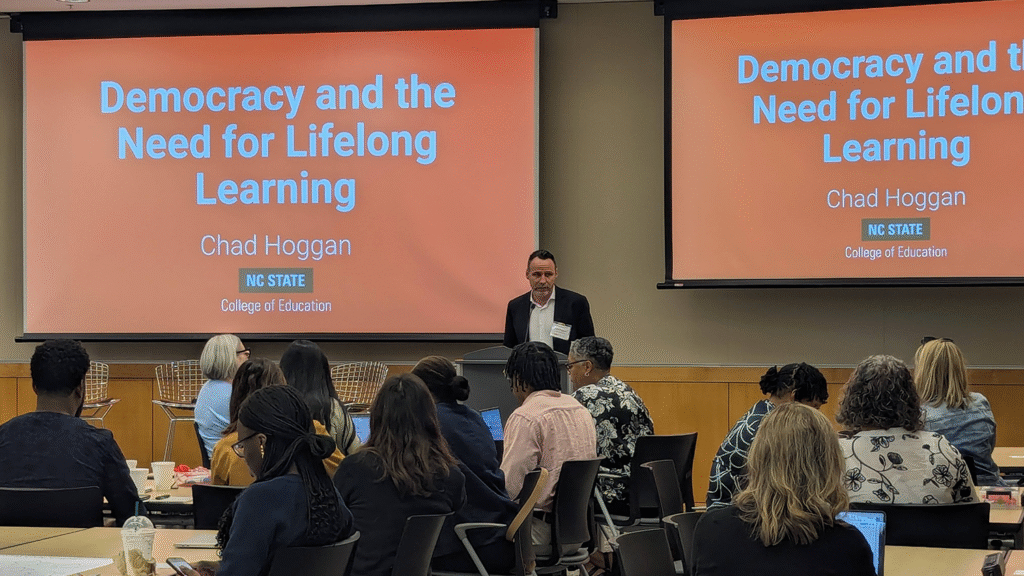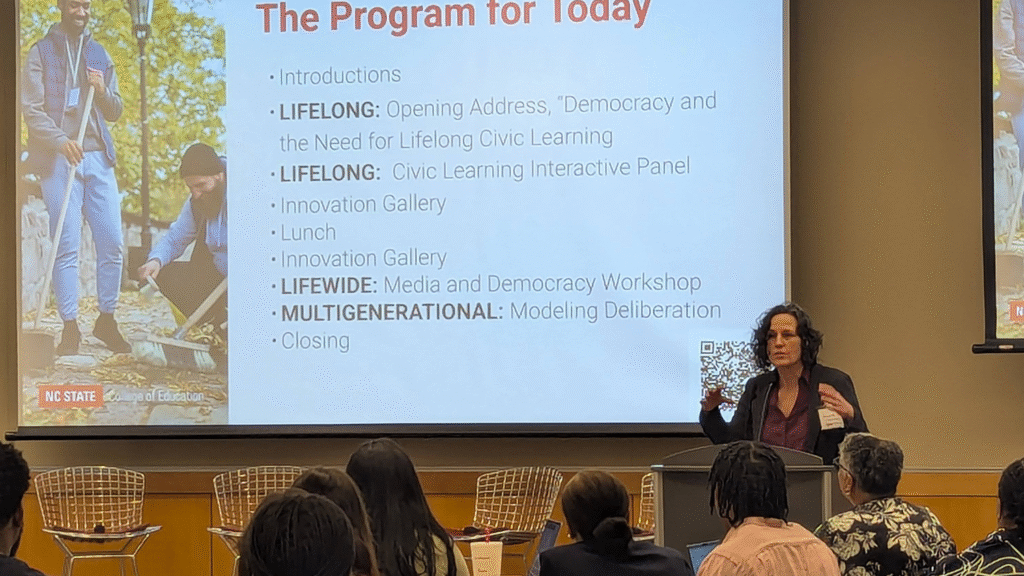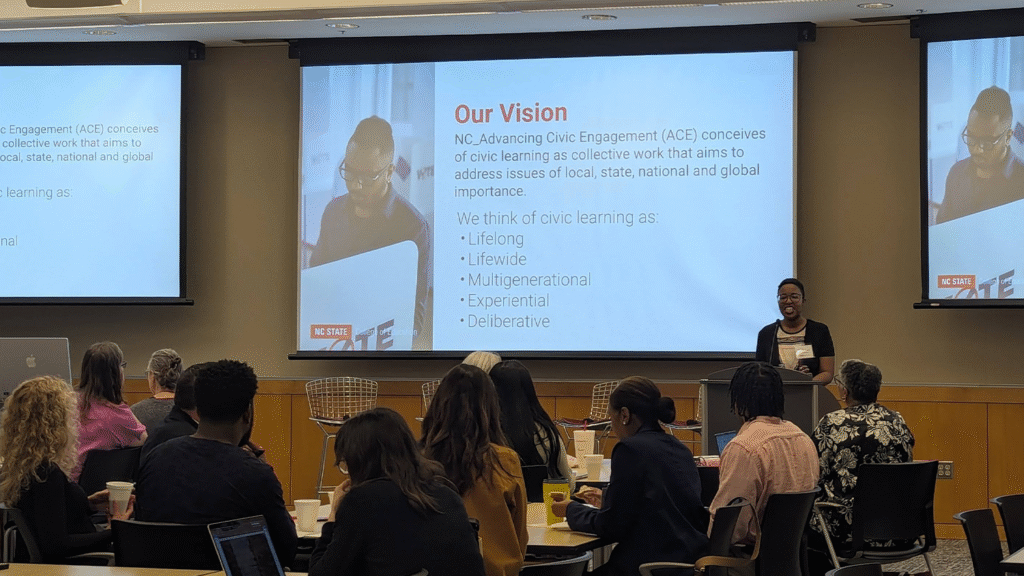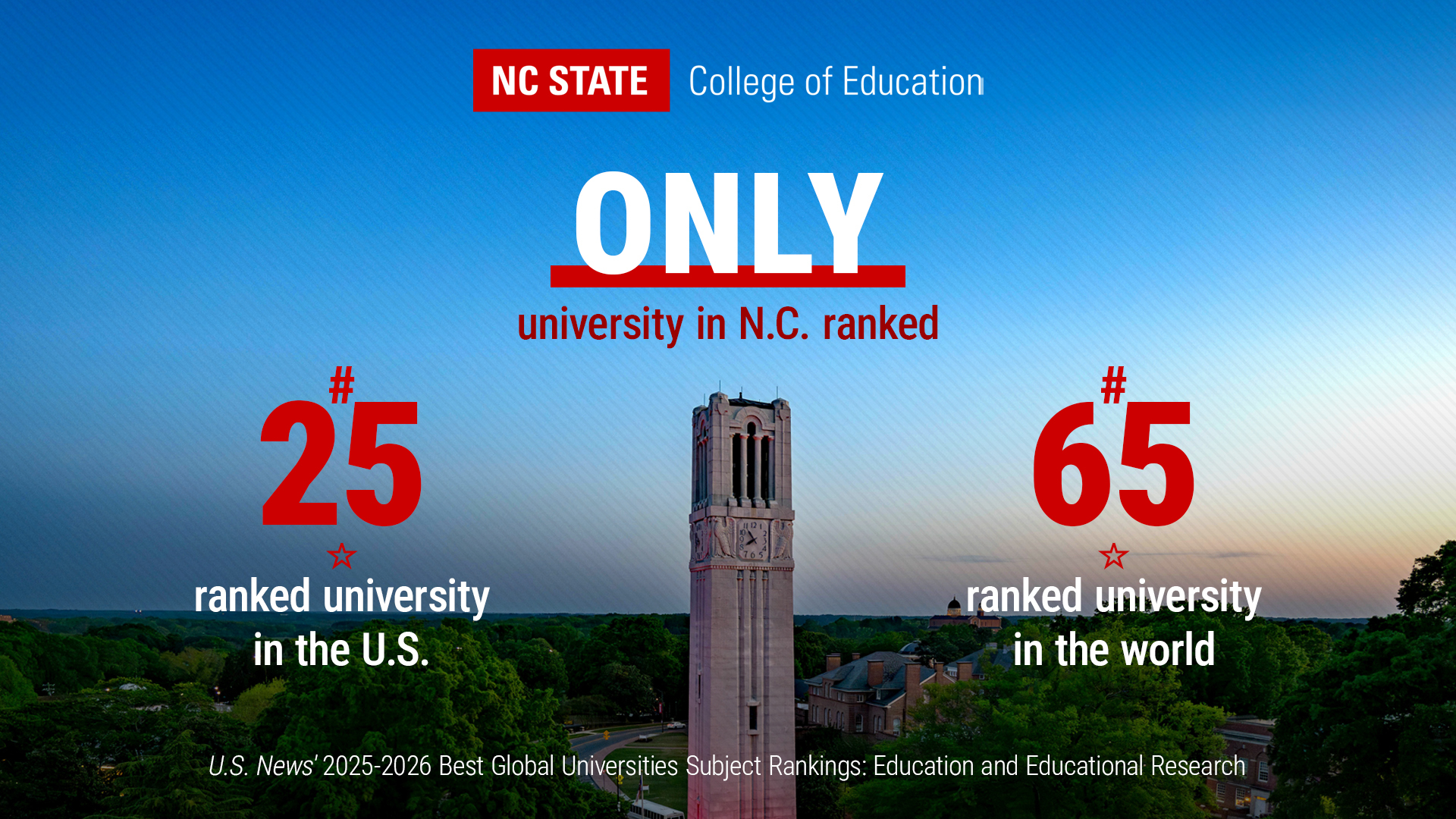North Carolina Advancing Civic Engagement (NC-ACE) Interdisciplinary Hub Engages Educators, Students and Community through Two Events
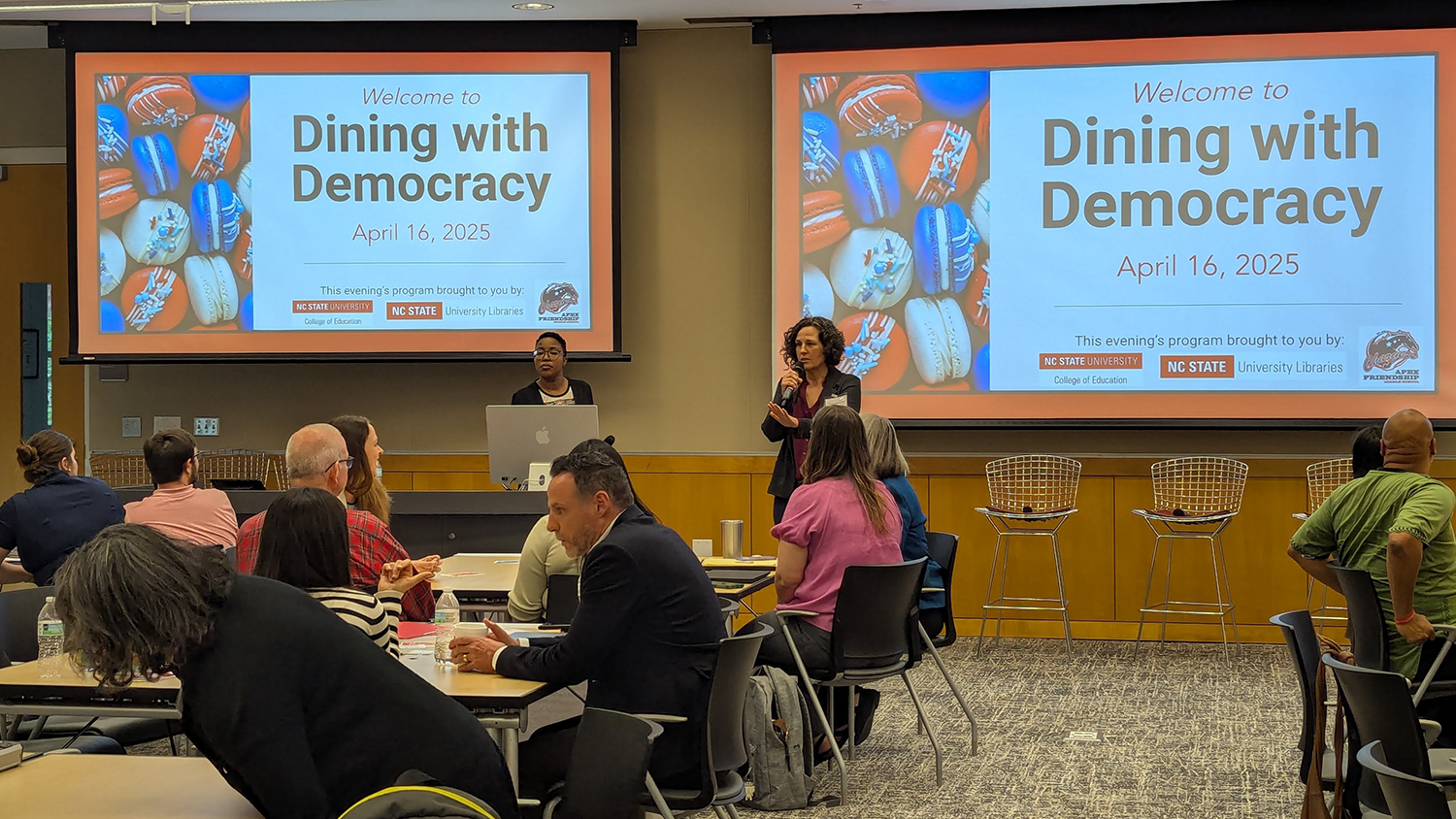
Dozens of educators, students and members of various North Carolina organizations had opportunities to learn about civic engagement this spring thanks to two events hosted by the NC State College of Education’s North Carolina Advancing Civic Engagement (NC-ACE) Interdisciplinary Research Hub.
NC-ACE is one of four Interdisciplinary Research Hubs in the college, established to find innovative solutions to pressing educational problems by bringing together individuals from different units and disciplines. The NC-ACE aims to develop a civic engagement and education model that includes students, faculty, community members, community colleges, universities, local organizations, and public officials and offices with the ultimate goal of developing program initiatives that advance civic education in North Carolina.
On April 15, NC-ACE held its inaugural event, “A Day of Civic Learning,” at the Friday Institute for Educational Innovation to introduce their work to the broader community and share their vision of civic learning as collective work that aims to address issues of local, state, national and global importance.
“We structured the day around the grounding ideas that civic learning ought to be lifelong, lifewide, multigenerational, deliberative and experiential,” said hub member and Associate Professor of Social Studies Education Paula McAvoy.
Following an introduction of the hub from McAvoy and hub members Christy Byrd, an associate professor of educational psychology, and Chad Hoggan, professor of adult and lifelong education, attendees were led through a discussion activity focusing on the work they are currently engaged in and what questions have emerged through that work.
Hoggan provided the keynote address for the event, entitled “Democracy and the Need for Lifelong Civic Learning,” framing democracy as a way of living in which people co-shape the world they live in, requiring a lifelong learning effort.
The event also included a panel discussion about the civic engagement efforts of representatives of various organizations and projects — including Associate Professor of Science Education K.C. Busch and College of Agricultural and Human Sciences Associate Professor Maru Gonzalez – two “Innovation Galleries,” where groups of attendees showcased their work related to civic engagement, and a “Media and Democracy” workshop, focused on the implications of artificial intelligence and led by hub member and Friday Institute for Educational Innovation Director of Digital Learning Emma Braaten.
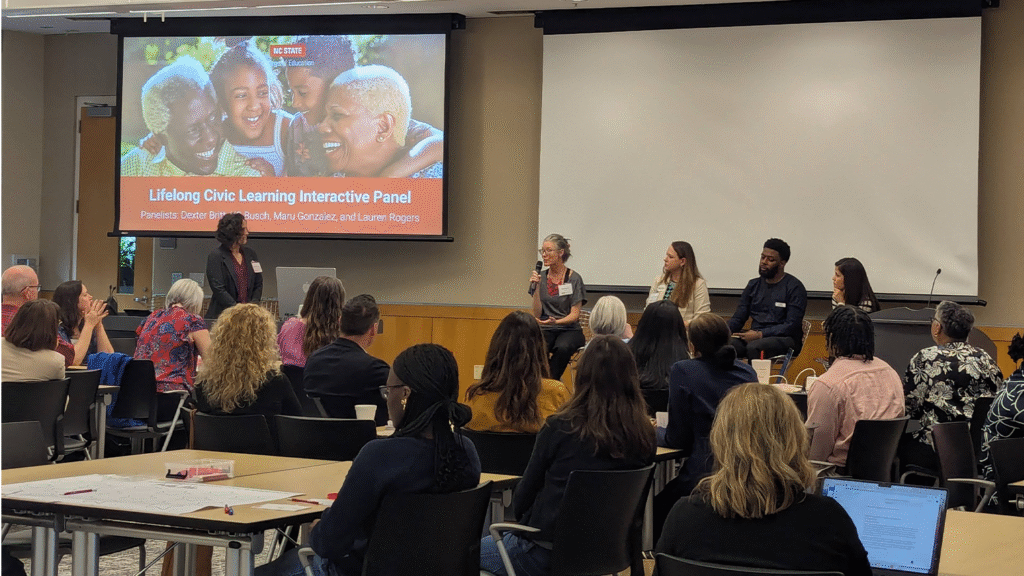
“I hope participants were excited about the prospect of collaborating across organizations and with us to advance civic engagement. There are many people doing work, and we are more powerful when we work together,” Byrd said.
“It was gratifying to see attendees making plans with each other to collaborate in some way,” Hoggan said. “Several participants asked NC State faculty to speak about civic engagement at events they were planning. This is great, because I want NC State’s College of Education to be seen as a resource for promoting civic engagement and civic learning across the state.”
The “Day of Civic Learning” concluded with a demonstration of the Dining with Democracy model, ahead of a hub-supported Dining with Democracy event hosted at Apex Friendship Middle School the following day.
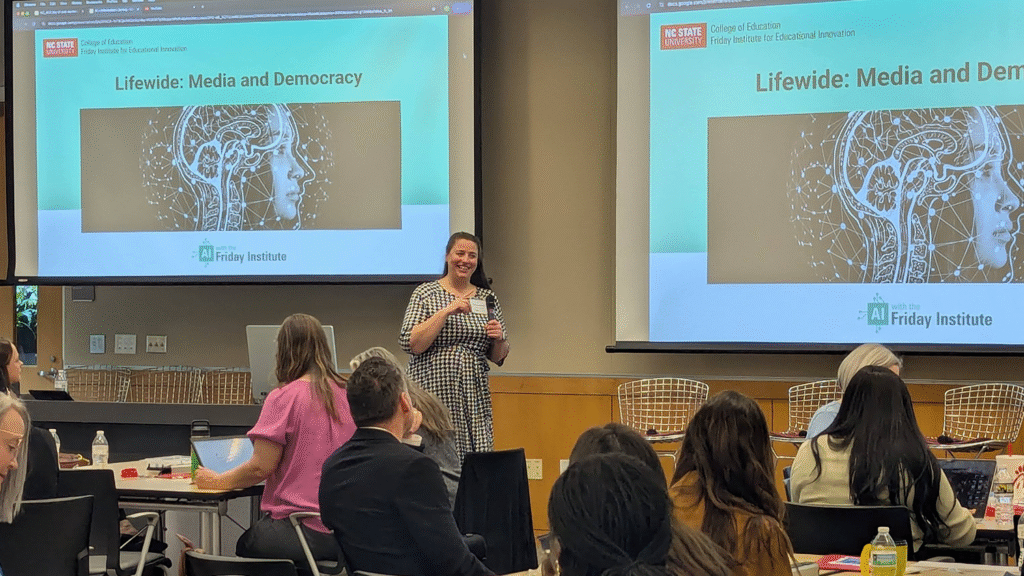
Dining with Democracy Reaches Middle School Students
The April 16 event at Apex Friendship marked the eighth Dining with Democracy hosted by McAvoy and Byrd, and was the first one to be held at a school-based site. About 80 middle school students, parents and teachers engaged in discussions that focused on topics such as whether or not the U.S. voting age should be lowered to 16 and what cellphone policies should be adopted by schools.
Hub member and Associate Professor of English Language Arts Education Carl Young helped facilitate the partnership with Apex Friendship Middle School, providing training and resources — alongside College of Education doctoral student Rachel Walz — for student teachers in the Middle Grades Language Arts and Social Studies Education program, their mentor teachers and middle school students at the school. Students and families from these student teachers’ classes were invited to attend the Dining with Democracy event and students in the Middle Grades Language Arts and Social Studies Education program also served as table facilitators.
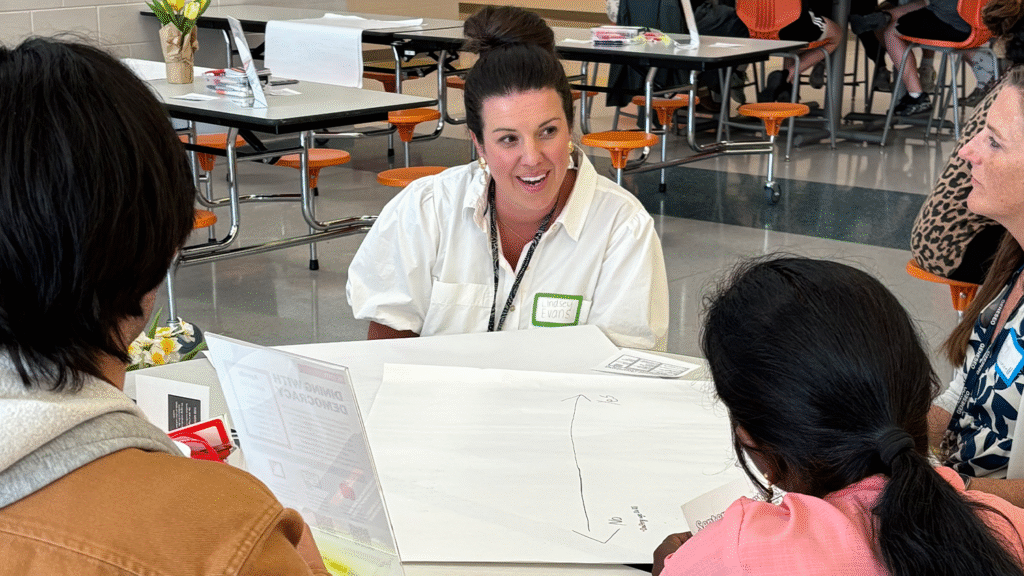
“We introduced various discussion strategies for engaging students in conversations about difficult content material, whether it be political, historical or literary as part of the senior student teaching seminar with the expectation that they would try some of these strategies out in their field placements,” Young said.
This year’s Dining with Democracy event was significant, McAvoy and Byrd said, because it demonstrated middle school-aged students are able to engage in discussions about important issues with adults and should be given more opportunities to do so.
“I think it’s also valuable for the teachers to see that their middle school students are able to apply their discussion skills outside of the classroom with people, like their parents, who are important to them,” Byrd said. “It’s also important for young people to realize they do have important things to say and that adults will engage respectfully with them.”
“Dining with Democracy aligns with the hub’s focus on intergenerational learning. This middle school event made me very excited about the possibility of researching how deliberating across generations might help participants be more open to hearing competing points of view,” McAvoy said.
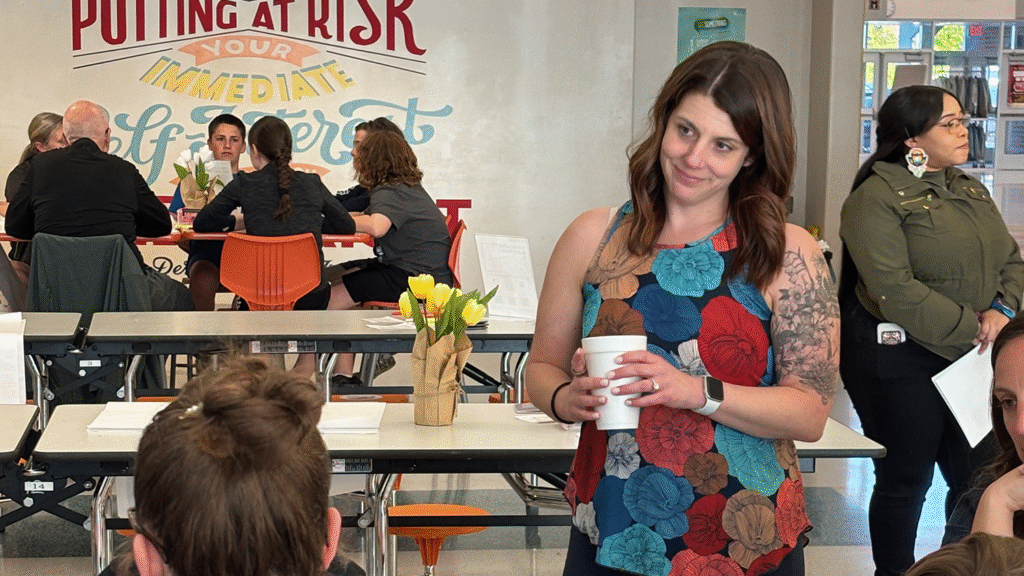
Next Steps for NC-ACE
Following the two April events, hub members have found opportunities to expand upon their existing work, including Hoggan’s “Institute of Civic Studies and Learning for Democracy” and Braaten’s media literacy work. Additionally, McAvoy and Byrd have been invited to be keynote speakers at a City of Raleigh civics event that will use their Dining with Democracy model as a way to engage participants, and Hoggan has been invited by NC Campus Engagement to speak at their Presidents Forum.
Through funding from the hub, Young, as well as fellow member and Professor of Higher Education and Adult and Lifelong Learning Paul Umbach, are launching two distinct research projects to leverage large datasets to analyze civic learning. Byrd, Young and McAvoy will also engage in research this summer, alongside doctoral students, to further investigate the impact of Dining with Democracy.
All North Carolina Advancing Civic Engagement (NC-ACE) hub members include:
- Associate Professor of Social Studies Education Paula McAvoy
- Associate Professor of Educational Psychology Christy Byrd
- Professor of Adult and Lifelong Education Chad Hoggan
- Friday Institute for Educational Innovation Director of Digital Learning Emma Braaten
- Assistant Professor of Community College Leadership Catherine Hartman
- Professor of Higher Education and Adult and Lifelong Learning Paul Umbach
- Associate Professor of Literacy Education Angela Wiseman
- Associate Professor of English Language Arts Education Carl Young
- Categories:
